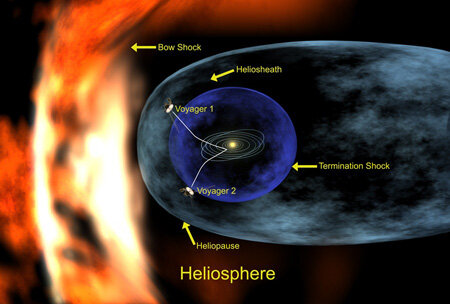Ezechiel
Paranormal Adept
Pretty obvious at this stage of the ET search game that the SETI radio signal detection strategy has been obsolete for quite a while. Searching for similar type 0 civilizations like us expecting them to blast out radio signals is a ridiculous waste of money... or it may just be a cost effective way to divert attention from real phenomenon. Using high energy radio signals for communication purposes is about to be phased out here anyways.... 100 year life span of that technology lol. Everything is getting wired up (hello internet) or wified.
Where is the broadband search initiative ? well you can't have one unless you've zeroed in on who you want to talk to. Type 1 (planetary) civilizations makes sense since relatively speaking, they are not too far away from us technology wise. As per Michio Kaku, speculating on galactic information transport using internet-like strategies (multi-band disassembly, re-assembly) is one hell of a challenge but may be achievable using super computers eventually yielding a snippet. yikes !
At our stage of development, just building a plan enabling us to detect intelligent activity on a galactic scale is still decades away. Using Michio Kaku's civilization scale (0 -> 3) you'd think each level would have a different cosmic signature. IMHO, defining these signatures should be priority number one instead of rushing with Allen telescope arrays to find a potential microscopic needle in the hay
BTW...detecting type 2 civilization (solar) using specialized telescopes would be a good idea. These guys directly suck up the energy of a star to power their civilization... so solar energy output discrepancies not due to black holes may point the way.
Problem with SETI is an earth-centric, static, religious, 'politically-correct' viewpoint where mankind is on top of the sentient stack. Using a structured approach 'a la Michio' where we are at the bottom of the stack is the way to go. We are the ants lol.
Where is the broadband search initiative ? well you can't have one unless you've zeroed in on who you want to talk to. Type 1 (planetary) civilizations makes sense since relatively speaking, they are not too far away from us technology wise. As per Michio Kaku, speculating on galactic information transport using internet-like strategies (multi-band disassembly, re-assembly) is one hell of a challenge but may be achievable using super computers eventually yielding a snippet. yikes !
At our stage of development, just building a plan enabling us to detect intelligent activity on a galactic scale is still decades away. Using Michio Kaku's civilization scale (0 -> 3) you'd think each level would have a different cosmic signature. IMHO, defining these signatures should be priority number one instead of rushing with Allen telescope arrays to find a potential microscopic needle in the hay

BTW...detecting type 2 civilization (solar) using specialized telescopes would be a good idea. These guys directly suck up the energy of a star to power their civilization... so solar energy output discrepancies not due to black holes may point the way.
Problem with SETI is an earth-centric, static, religious, 'politically-correct' viewpoint where mankind is on top of the sentient stack. Using a structured approach 'a la Michio' where we are at the bottom of the stack is the way to go. We are the ants lol.




